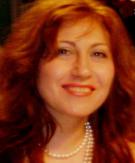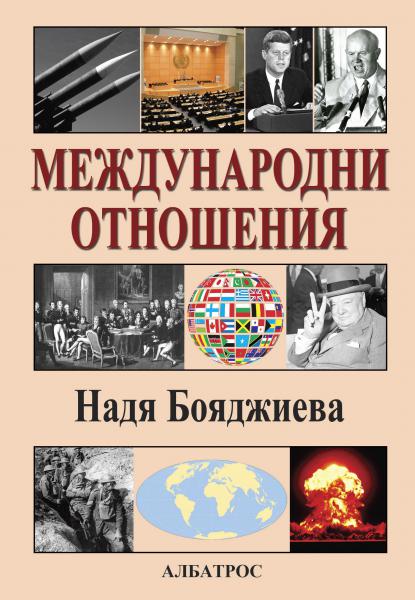Nadia Boyadjieva

Education: M.A., History, Sofia University; M.A., Law, New Bulgarian University; Ph.D., Sofia University
Nadia Boyadjieva is Visiting Scholar at the Davis Center for Russia and Eurasian Studies at Harvard Univeristy
When did you first develop an interest in Slavic, East European and Eurasian Studies?
Having seen firsthand the dramatic changes in Bulgaria in November 1989 when I was a student, I wanted to learn more about the history, politics, and legal structures of Bulgaria and other former Eastern bloc states. My initial postgraduate degrees were in history and law, and I completed my Ph.D. in Modern and Contemporary World history in 1999 focusing on U.S. policy during the conflict in Bosnia and Herzegovina in mid-1990s. Soon thereafter, Bulgaria became a member of both NATO and the European Union; something I never would have believed would be possible when I was a student.
How have your interests changed since then?
I have maintained a keen interest in human rights and minority rights issues and democratization in Eastern Europe and the former Soviet Union, including the dissolution of Yugoslavia in the 1990s, but, I have also become increasingly interested in questions of international politics and national security. I have published five books and am currently working on three more. My most recent book, published in late March 2017, is a lengthy (nearly 700-page) survey of international relations theory and the history of international politics over the past 370 years, with a particular emphasis on the Cold War period. A couple of years earlier, after becoming a full professor at Plovdiv University, I published the first volume of a two-part study of NATO’s relations with the Russian Federation after 1991. The initial volume covered the years under Boris Yeltsin and, in working on it, I learned a great deal more than I had known previously about how NATO actually works and how Russian leaders have fashioned their own national security policies.
What is your current research project?
My latest research project is the second volume of my study of NATO-Russian relations. Initially, I was planning to turn immediately to work on it after the  publication of the first volume. But when I decided to apply for a Doctor of Sciences degree in international law (an advanced degree beyond the Ph.D. awarded to full professors who complete an innovative book manuscript and defend it), I focused instead for the time being on my book about international relations. I am glad now to be turning back to the second volume of my study of NATO-Russia relations. I have begun writing it as a visiting scholar at Harvard University (thanks to generous funding as a Strategy and Policy Fellow from the Smith Richardson Foundation) and will continue to do so over the next academic year with an office at Harvard’s Davis Center for Russian and Eurasian Studies and Cold War Studies Program. This volume, which I will be publishing in both Bulgarian and English, will cover the turbulent years from 2000 to 2017 under Vladimir Putin. The book will explain how and why NATO’s relations with Russia have gone so badly off track over the past two decades and why it will be extremely difficult to return to the close relationship of the early 1990s. The other book I hope to complete more or less simultaneously is an overview of the dissolution of Yugoslavia. I already wrote most of this book (in both Bulgarian and English), which means that my work to complete it will not divert me from completing my two-volume study of Russia-NATO relations.
publication of the first volume. But when I decided to apply for a Doctor of Sciences degree in international law (an advanced degree beyond the Ph.D. awarded to full professors who complete an innovative book manuscript and defend it), I focused instead for the time being on my book about international relations. I am glad now to be turning back to the second volume of my study of NATO-Russia relations. I have begun writing it as a visiting scholar at Harvard University (thanks to generous funding as a Strategy and Policy Fellow from the Smith Richardson Foundation) and will continue to do so over the next academic year with an office at Harvard’s Davis Center for Russian and Eurasian Studies and Cold War Studies Program. This volume, which I will be publishing in both Bulgarian and English, will cover the turbulent years from 2000 to 2017 under Vladimir Putin. The book will explain how and why NATO’s relations with Russia have gone so badly off track over the past two decades and why it will be extremely difficult to return to the close relationship of the early 1990s. The other book I hope to complete more or less simultaneously is an overview of the dissolution of Yugoslavia. I already wrote most of this book (in both Bulgarian and English), which means that my work to complete it will not divert me from completing my two-volume study of Russia-NATO relations.
What do you value about your ASEEES membership?
ASEEES is very well known in Bulgaria as a group of the most prominent academic experts on Eastern Europe—an organization that is held in the highest esteem. I am proud to be part of it, and I have benefited a great deal from my participation in numerous ASEEES annual conventions, including in San Antonio and Philadelphia. At these conventions I not only have met many others who share my interests but have also been able to speak with U.S. publishers about putting out English versions of my latest books. I am looking forward to meet with my friends and colleagues at the ASEEES Annual convention this November in Chicago.
Besides your professional work, what other interests and/or hobbies do you enjoy?
Because I have become a full professor at the Balkan Studies Institute of Bulgaria’s Academy of Sciences and am also still serving as chair of the department of international law and international relations in the law faculty of Plovdiv University, I have had less free time than I would like. But I enjoy bicycling, photography, and watching films (including older classics as well as the most recent films). I also love to travel in different countries and explore the history and diversity in multicultural societies.
